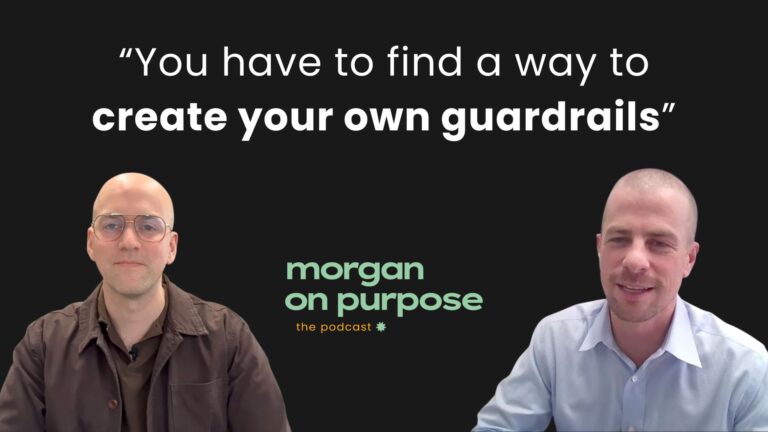Zombies might just be Hollywood’s favorite monster. If you’ve managed to somehow avoid the entire zombie genre these undead roam the earth trying to bite and eat the brains of the living, always seeking more.
I have a theory for why zombies top our list of pop culture obsessions: Many of us act like zombies every day, particularly when it comes to money.
Common zombie habits
Have you ever done one of the following things? (Or witnessed a friend/family member do them?)
-
- Count down the days until your next paycheck.
-
- Bought something you didn’t need for the “high” of it.
-
- Obsessively tracked stock prices or market performance.
-
- Sold investments because everyone else was selling them.
-
- Bought something because everyone else was buying it.
-
- Made a money decision that now you can’t explain why.
These are all symptoms of zombie economics.
We live our lives mindlessly pursuing our next paycheck. To pay our next bill or to buy our next little treat that will make us a little bit happier… only to realize we need to perpetuate the cycle the following month in order to pay the next bill or afford the next little treat. Now, replace money with brains and you can see the similarities.
Zombie economics
When I talk about zombie economics and the idea of mindlessly chasing money, people sometimes respond with a shrug and a laugh. “What do you expect?” they’ll say. “Money is the root of all evil!”
So I want to be clear about one point: Money is not evil. Money represents freedom, choice, and the ability to do more with your life. If you have $100 to spend on dinner, you have more options than if you have $5 to spend. If you retire with $5 million, you have more flexibility than if you retire with $500,000.
Where money can turn problematic, however, is when we stop assigning any kind of purpose to money. If we stop looking at why we want money—whether it’s to have flexibility, create opportunities for the next generation, or something else entirely—and start chasing money just for the sake of it.
Are you chasing money because you think you should be chasing money? That’s zombie economics. Any time you seek money without thought or intention, whether it’s mindlessly chasing a paycheck, mindlessly spending that paycheck, or putting your money where everyone else is without thought… All of these things resemble the behavior of zombies. It’s just that you’re chasing money, not brains.
Breaking free of zombie economics
Unlike “real” zombies, we can cure zombie economics. Better yet, it’s easier to cure than you might think. Essentially, the silver bullet (to mix monster metaphors) is purpose.
If you can start to map out your priorities in life, you can start to assign purpose to your money. Here’s an example:
Steve prioritizes flexibility and time because he wants to be present for his family. When he’s offered a freelance opportunity for work, he takes it, even though it pays less. Because he knows his priorities are flexibility and time, it makes sense to “spend” the salary he’s giving up in order to buy more time with his family. The next time Steve is wondering whether he can afford something, he might filter the decision through that lens—does he want to work more hours (and sacrifice that time with his family)? “I’d rather spend time with my family,” is a much healthier mindset than, “I can’t afford it.”
The biggest weapon against zombie economics is mindset. That means assigning intention. So start by asking yourself these questions:
-
- Am I being a zombie? Take a day for example and look at every interaction you had with money that day and see how many of those interactions were on autopilot. If you can’t explain the “why” behind any of your transactions over that period, you’re participating in zombie economics.
-
- If I had unlimited resources, how would I spend my days? This can help you pinpoint what you truly value. It might be people and time. It might also be things that cost money, like travel or experiences. That’s OK; the point of this question is to help you figure out your personal priorities by removing the typical money and time constraints.
-
- What triggers my bad money habits? If you notice that you switch to autopilot when you’re emotional or frustrated, when you’re envious of friends, or something else entirely, you can start to think about how to inject purpose into those moments.
-
- How can I stop mindless money? Sometimes it’s as simple as a habit reset. Try sticking a photo that represents your purpose or priorities in your wallet. It could be quitting the job that you hate but stick with just for the paycheck.
Next steps
If you’re just realizing you have an issue with zombie economics you may want to avoid going too far down the rabbit hole of WHY you feel the way you do about money. Many of us have complex and deeply-rooted beliefs about money. These beliefs can be complicated and take time to unwind.
While it’s certainly worth it to do that work, you can start the practice of being mindful about money before you dive into those bigger picture concepts.
If you’ve asked yourself the questions in this article and want to keep going, I’d love to talk to you. A good financial advisor can help you be more intentional about your money.
You can also read more about zombie economics in my book: Money with purpose.


